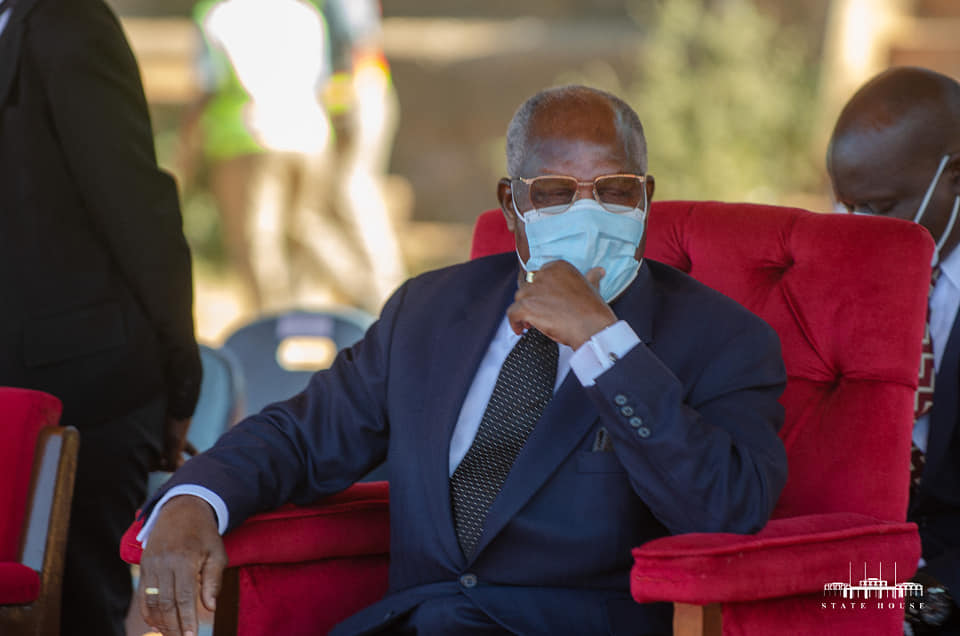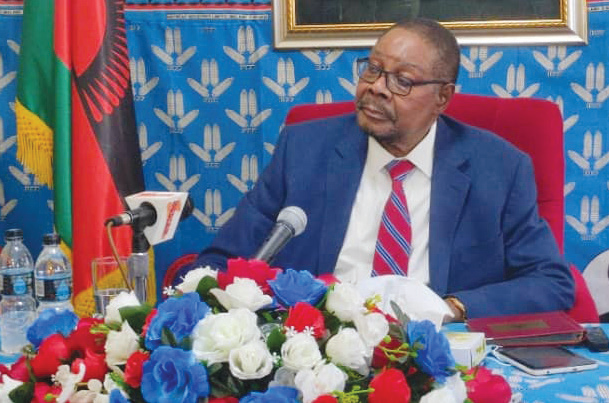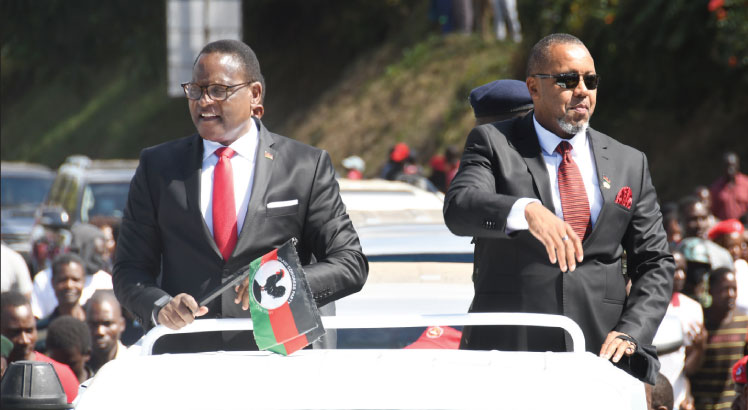30 years on but still in transition
On June 14, Malawi commemorated 30 years after restoration of multiparty democracy. This follows the re-introduction of multiparty politics in Malawi in 1993 following a referendum. This is an important day as it changed the political landscape when Malawians voted against single-party system and embraced multiparty governance. As we commemorate the day, it is paramount to reflect on the gains made as well as the challenges the county is still facing.
The day also reminded Malawians that no leader or political party will ever suppress fundamental freedoms of Malawians.

Malawian’s decision to change the system of government was strong evidence that the one-party system was no longer tenable. Now the question is: Has 30 years of multiparty system of government met Malawi’s expectations?
To start with, we must somehow be proud that multiparty democracy paved the way for various reforms. We cannot celebrate our hard-fought democracy without pointing out some of our achievements which are not limited to the following:
New Constitution
We cannot talk about our new democracy without the new Constitution that included the Bill of Rights. This is aimed at safeguarding fundamental freedoms which Malawians never enjoyed or knew about before. The Bill of Rights set a foundation that promotes our fundamental freedoms.

Constitutional bodies
The new Constitution established constitutional bodies such as the Human Rights Commission, the Ombudsman and the Anti-Corruption Bureau. These institutions are vital to the country’s consolidation of democracy. Unfortunately all the successive regimes have not been fully committed to supporting these bodies. It seems all regimes have either been suspicious of these bodies or have not fully appreciated the role of these bodies for national democratic building.
Civil society/NGOs
We have seen the mushrooming of the civil society organisations which are contributing to the democratic process and national development. These organisations have provided an important platform in shaping and influencing the democratic space as well as providing checks and balances. It is no secret that without the role of the civil society, Malawi would have been sliding backward.

Freedom of the media
The country has strived to protect and promote freedom of the media since the multi-party democracy. No question, the media is playing a critical role in nation building, development and unity.
Challenges
But much as we are talking of achievements the country is still struggling with numerous challenges.
Malawi still in transition
While democracy has expanded our fundamental freedoms and justice, we still seem to be in transition. We seem to be in dilemma on how to tackle our socio-economic and political challenges. The country is still struggling with increased corruption practices, executive arrogance, inconsistence in service delivery, resistance to reforms such as public sector reforms and intolerance. We have also seen attempts to shrink the civic and democratic space.
Struggling with corruption fight
Corruption in Malawi remains a significant and cross-cutting problem that ranges from high-level political corruption to petty bribery as well as patronage and nepotism. We can argue that the current social, political and administrative conditions tend to provide an environment that is conducive to increased corrupt practices resulting into petty, political and widespread grand corruption in government and private sector.

Malawi’s latest corruption scandal, the alleged Sattar corruption case, reveals the vulnerability of the anti-corruption system and fears of State capture by Malawians.
Lack of political will on public sector reforms
The country is facing daunting challenges in implementing the public sector reforms. This has increased corruption practices, concerns of poor services delivery and lack of accountability. The country has seen no political will despite efforts to push for public sector reforms.
With the resistance to reforms, we can conclude that we have a ‘defective democracy’ which is showing no trend towards the consolidation of a functioning democracy with effective institutions.
Old-self in new Malawi
The country also seems to see a perpetuation of some trends of old-self into the new Malawi such as political violence and intolerance, media harassment, suppression of fundamental rights such as curtailing of freedom of demonstration and expression and association. This might be due to some elements who do not believe in the advancement of an open and free democratic society. These elements have an appetite to take this country backward. But regardless of this, Malawi must strive to respect, protect, promote and fulfils all human rights of citizens as a commitment to democratisation.

Politics of chameleon, poverty and opportunism
Malawi democracy has been affected by politics of chameleon, poverty and opportunism. Political pluralism has nurtured our political élite broader allegiances as unpredictable and erratic. This is the nature of our democracy where politicians move in and out of alliances without consultation with their supporters. This has proved to be dangerous for our democracy and, if not curtailed, will bring more political chaos, resulting in hindering national unity and development.
Lack of long-term development commitment
We have also seen lack of will among Malawi’s politicians to commit to a long-term development-oriented agenda which would demand political and social dialogue, concessions and compromise for the benefit of the nation. Instead, politicians seem to be pre-occupied with preserving and gaining power and preventing others from getting power. Our politicians have always diverted their focus on development to political campaigning throughout, consolidation of power and accumulating resources from the government coffers.
Leadership challenge
In any democratisation process, leadership is a critical requirement for the success of a country. Credible, decisive and trustworthy leadership complements the institutional framework of democratic governance, providing the necessary stability and a climate for sustainable development, peace and prosperity. While democracy depends on a credible, trustworthy leadership, Malawi has not experienced significant leadership turnover since the demise of the one-party system.
Parliament
Malawi’s Parliament always seems to be partisan battleground. This has been the trend since the first multi-party august House. Our Parliament is failing to function as a platform for dialogue, elimination of fear and mistrust. It has degenerated into a primary source or hotbed of political tension and conflict-building of political cliques. It has also turned into a battleground for partisan conflicts.
Electoral process
Elections are the hallmark of democratic politics because they provide a unique opportunity for the electorate to indicate their priorities, interests and concerns by exercising their right to vote.
We must applaud ourselves that the conduct of our elections has greatly improved. But we need to further pursue electoral reforms for the credibility of the entire electoral process. Therefore, the overall Malawi’s electoral landscape must be reviewed as we go towards 2025 elections.
National unity, forgiveness and reconciliation
Malawi seems to be resisting national reconciliation with the past. The country must address national reconciliation and unity. Compensating victims of atrocities committed in the single party rule must be on government agenda. We cannot talk about genuine peace, unity and reconciliation when the past is still hanging on us. This has a negative impact and a hindrance to the consolidation of our democracy.
Long Live Our Democracy! Long Live Mother Malawi! n
*The author is governance and human rights advocate.





